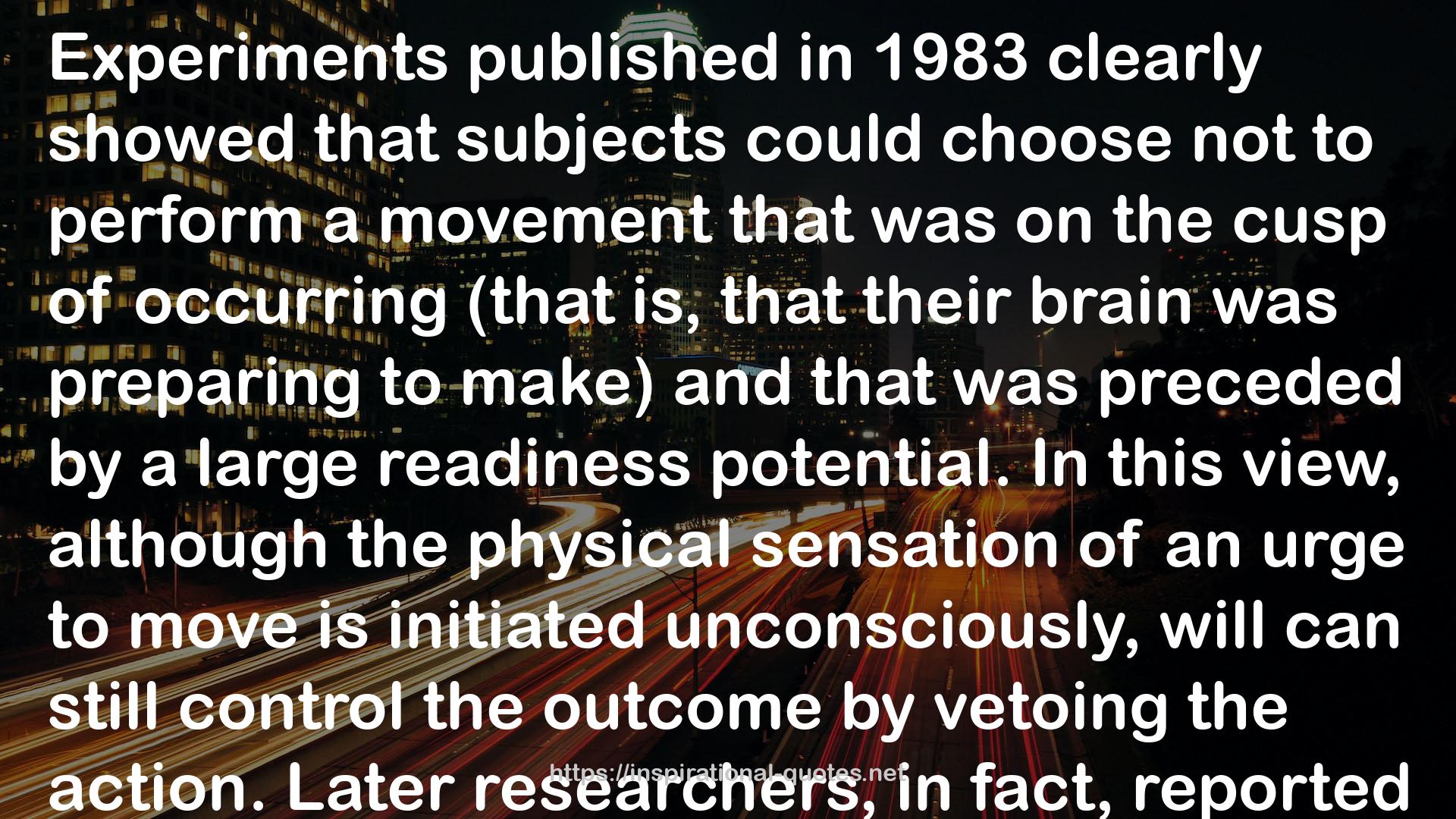" Experiments published in 1983 clearly showed that subjects could choose not to perform a movement that was on the cusp of occurring (that is, that their brain was preparing to make) and that was preceded by a large readiness potential. In this view, although the physical sensation of an urge to move is initiated unconsciously, will can still control the outcome by vetoing the action. Later researchers, in fact, reported readiness potentials that precede a planned foot movement not by mere milliseconds but by almost two full seconds, leaving free won’t an even larger window of opportunity. “Conscious will could thus affect the outcome of the volitional process even though the latter was initiated by unconscious cerebral processes,” Libet says. “Conscious will might block or veto the process, so that no act occurs.” Everyone, Libet continues, has had the experience of “vetoing a spontaneous urge to perform some act. This often occurs when the urge to act involves some socially unacceptable consequence, like an urge to shout some obscenity at the professor.” Volunteers report something quite consistent with this view of the will as wielding veto power. Sometimes, they told Libet, a conscious urge to move seemed to bubble up from somewhere, but they suppressed it. Although the possibility of moving gets under way some 350 milliseconds before the subject experiences the will to move, that sense of will nevertheless kicks in 150 to 200 milliseconds before the muscle moves—and with it the power to call a halt to the proceedings. Libet’s findings suggest that free will operates not to initiate a voluntary act but to allow or suppress it. “We may view the unconscious initiatives for voluntary actions as ‘bubbling up’ in the brain,” he explains. “The conscious will then selects which of these initiatives may go forward to an action or which ones to veto and abort…. This kind of role for free will is actually in accord with religious and ethical strictures. These commonly advocate that you ‘control yourself.’ Most of the Ten Commandments are ‘do not’ orders.” And all five of the basic moral precepts of Buddhism are restraints: refraining from killing, from lying, from stealing, from sexual misconduct, from intoxicants. In the Buddha’s famous dictum, “Restraint everywhere is excellent. "
― Jeffrey M. Schwartz , The Mind and the Brain: Neuroplasticity and the Power of Mental Force
